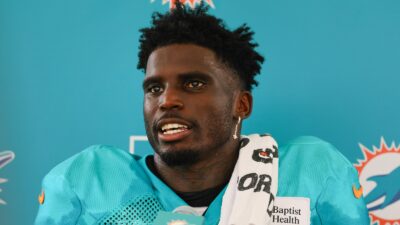 There was a monstrous announcement made Saturday that will change the MMA landscape. Dana White told MMA Fighting’s Ariel Helwani that UFC’s parent company, Zuffa LLC., has come to an agreement to purchase Strikeforce. This is easily the biggest news since the UFC bought Pride back in 2007 and it can mean many things, both good and bad, for MMA.
There was a monstrous announcement made Saturday that will change the MMA landscape. Dana White told MMA Fighting’s Ariel Helwani that UFC’s parent company, Zuffa LLC., has come to an agreement to purchase Strikeforce. This is easily the biggest news since the UFC bought Pride back in 2007 and it can mean many things, both good and bad, for MMA.
Let’s start with the good. The best part of Strikeforce being purchased by Zuffa is that all the fighters for both organizations are now owned by the same company. White stressed in his interview that everything will be “business as usual” and that the organizations will remain separate. He repeated that contracts will be honored, and that Strikeforce will continue to run as it has.
But that won’t last long.
As soon as fighters’ contracts are up and TV deals come to an end, Strikeforce will no doubt be absorbed by the UFC.
Though Strikeforce has developed somewhat of a following on Showtime and it has a good amount of big-name fighters in its stable, it has nowhere near the name recognition, power, and respect that the UFC commands. For many fans, and most people, the UFC brand is synonymous with MMA. Much like people think of Band-Aids when they need bandages, or Kleenex when they need a tissue, the UFC is what people know when they think MMA. Strikeforce had very little of a chance to surpass the UFC (if any), so they have done the wise thing and sold.
For the UFC, this is a good move because it gives them more access to fighters and it puts most of the world’s best fighters under the same proverbial roof. This will lead to a greater variety of competitive matchups, and it will make it much easier to arrange fights between men who previously fought in the opposing leagues.
 With the inevitable merger, stars like Fedor Emelianenko and Alistair Overeem will be able to fight men like Cain Velasquez and Brock Lesnar. It will allow Dan Henderson, Gilbert Melendez, Gegard Mousasi, and Nick Diaz a better opportunity to fight more high-level competition. Strikeforce has its share of stars, but it has lacked depth. UFC has stars and depth, and now it will have even greater depth allowing for even more high-quality shows and fights.
With the inevitable merger, stars like Fedor Emelianenko and Alistair Overeem will be able to fight men like Cain Velasquez and Brock Lesnar. It will allow Dan Henderson, Gilbert Melendez, Gegard Mousasi, and Nick Diaz a better opportunity to fight more high-level competition. Strikeforce has its share of stars, but it has lacked depth. UFC has stars and depth, and now it will have even greater depth allowing for even more high-quality shows and fights.
The downsides to this deal are more limited. For one, Strikeforce will eventually merge with UFC and many of its employers or associates could end up out of a job. Two, the UFC will have to decide if they want to maintain a relationship with Showtime that Strikeforce has cultivated. And lastly, and most importantly, the move gives the UFC a monopoly in the business. That can have far reaching effects and can be bad for business in many senses.
As LBS contributor Alan Hull has said in the past, Dana White is “judge, jury, match-maker, and promoter.” He’s an extremely powerful man that will become even more powerful. If he wants a fighter out of the UFC, all he has to do is say the word. If he wants a matchup to happen, he makes it happen. The formula seems to be working, but now it will leave fighters with even fewer rights.
Before, if fighters had problems with White like Paul Daley and Frank Shamrock, they could join a competitor and still make a good living. Now, that option will be gone for the most part. Perhaps such a move could result in a fighters’ union being established to help protect fighters’ rights.
Zuffa’s purchase is good news for the sport and for fans, but it could also spell some bad news. Don’t be surprised if some of these issues arise down the line.













